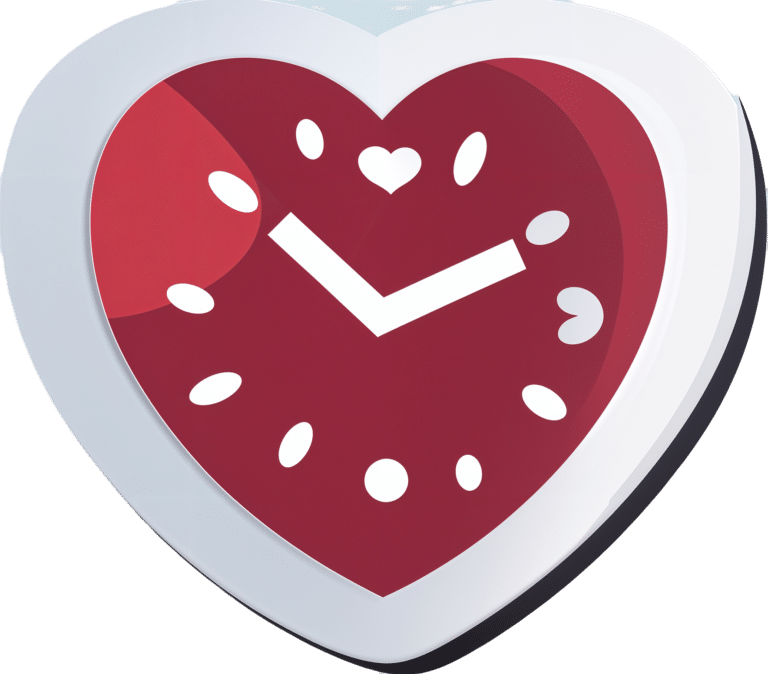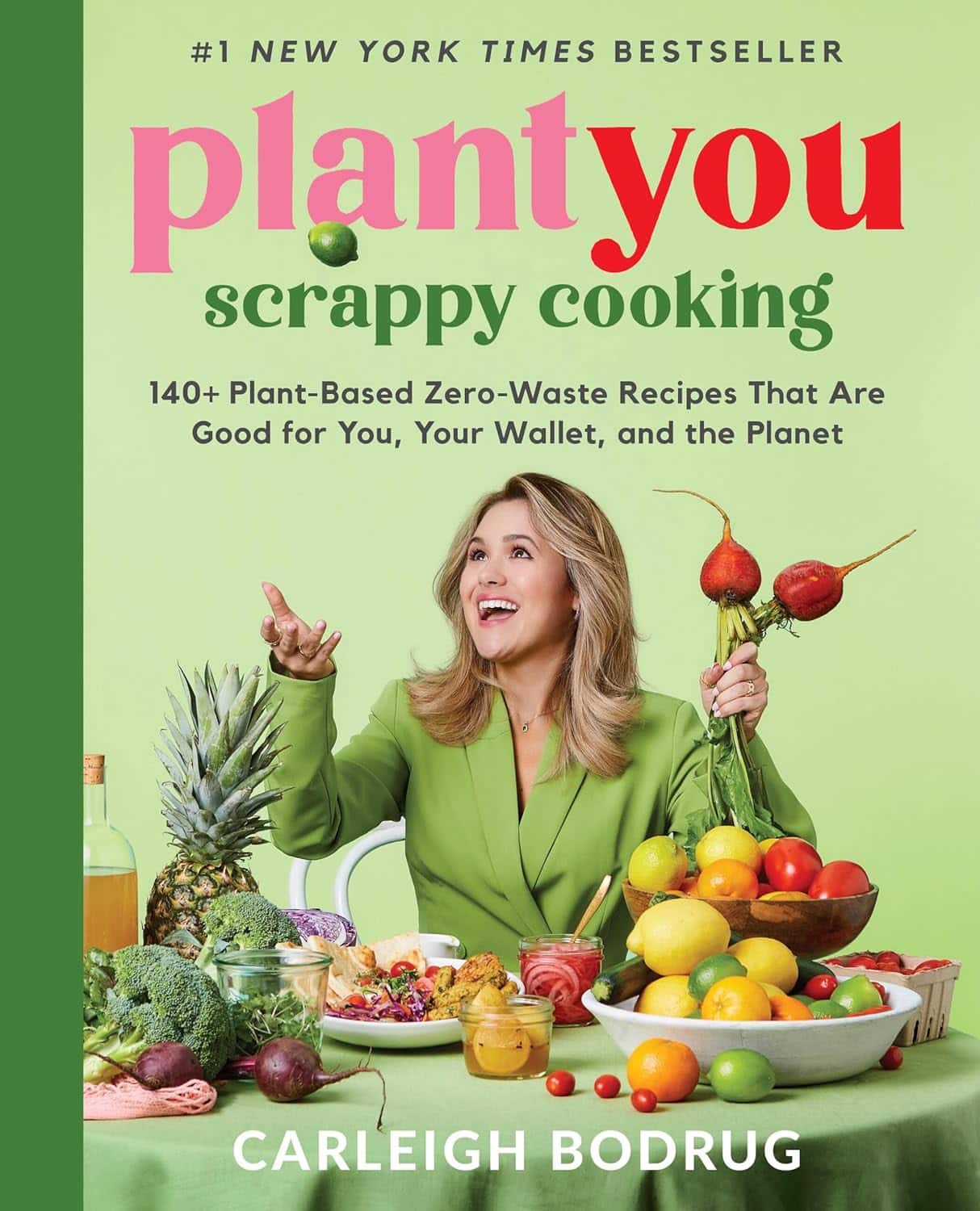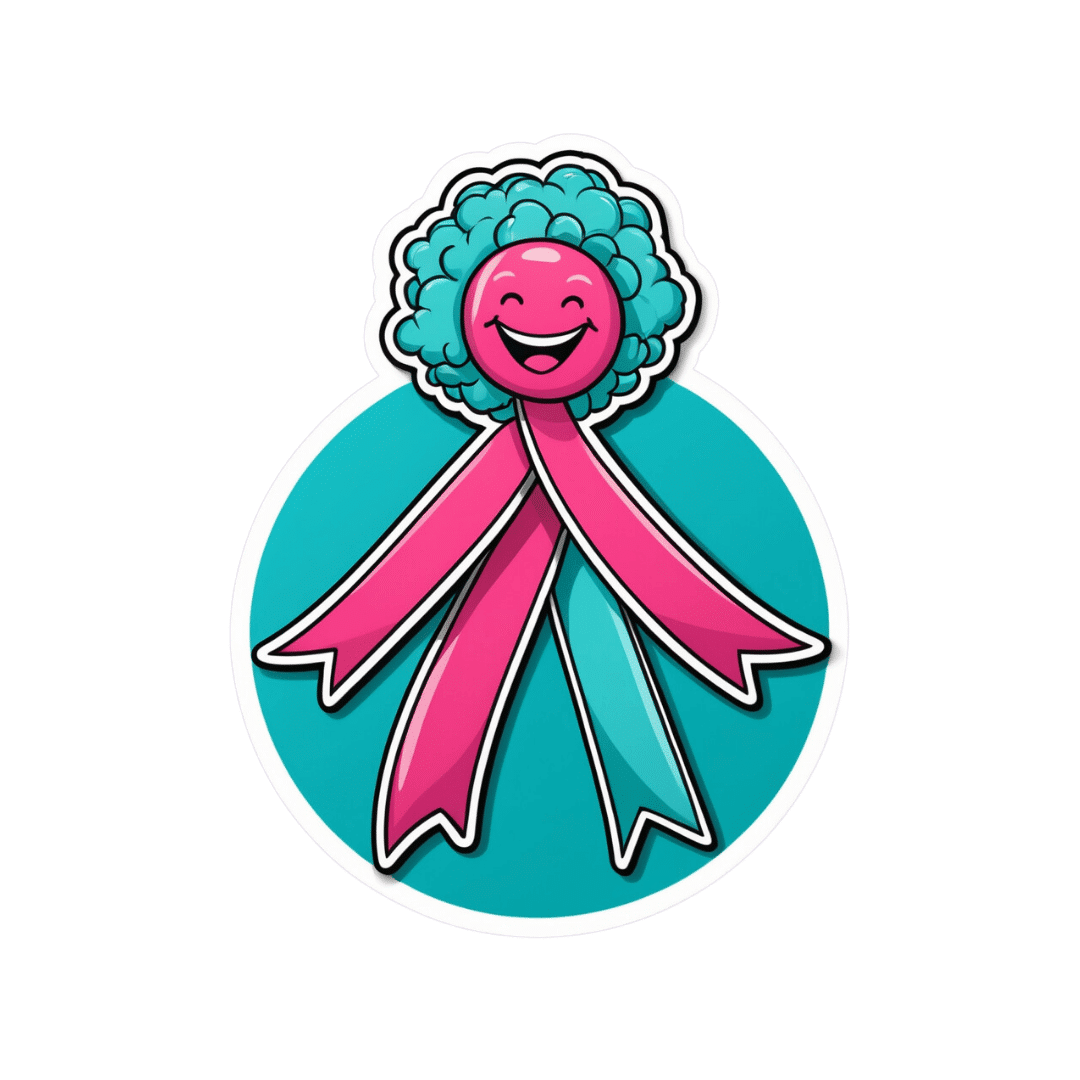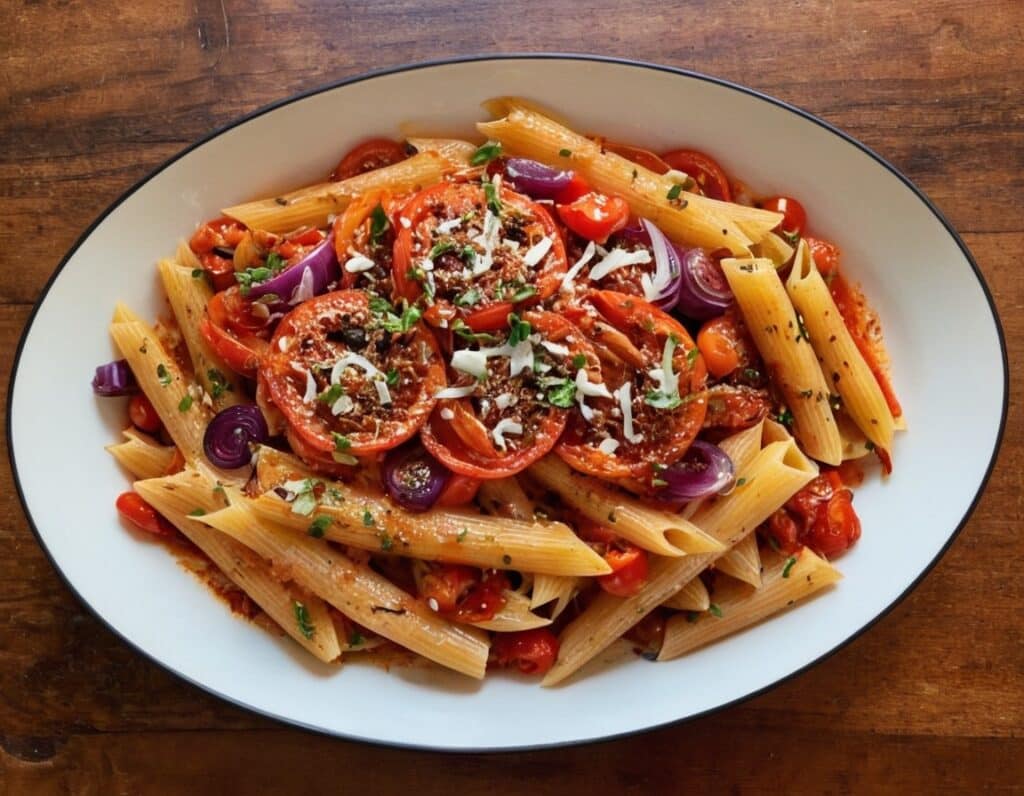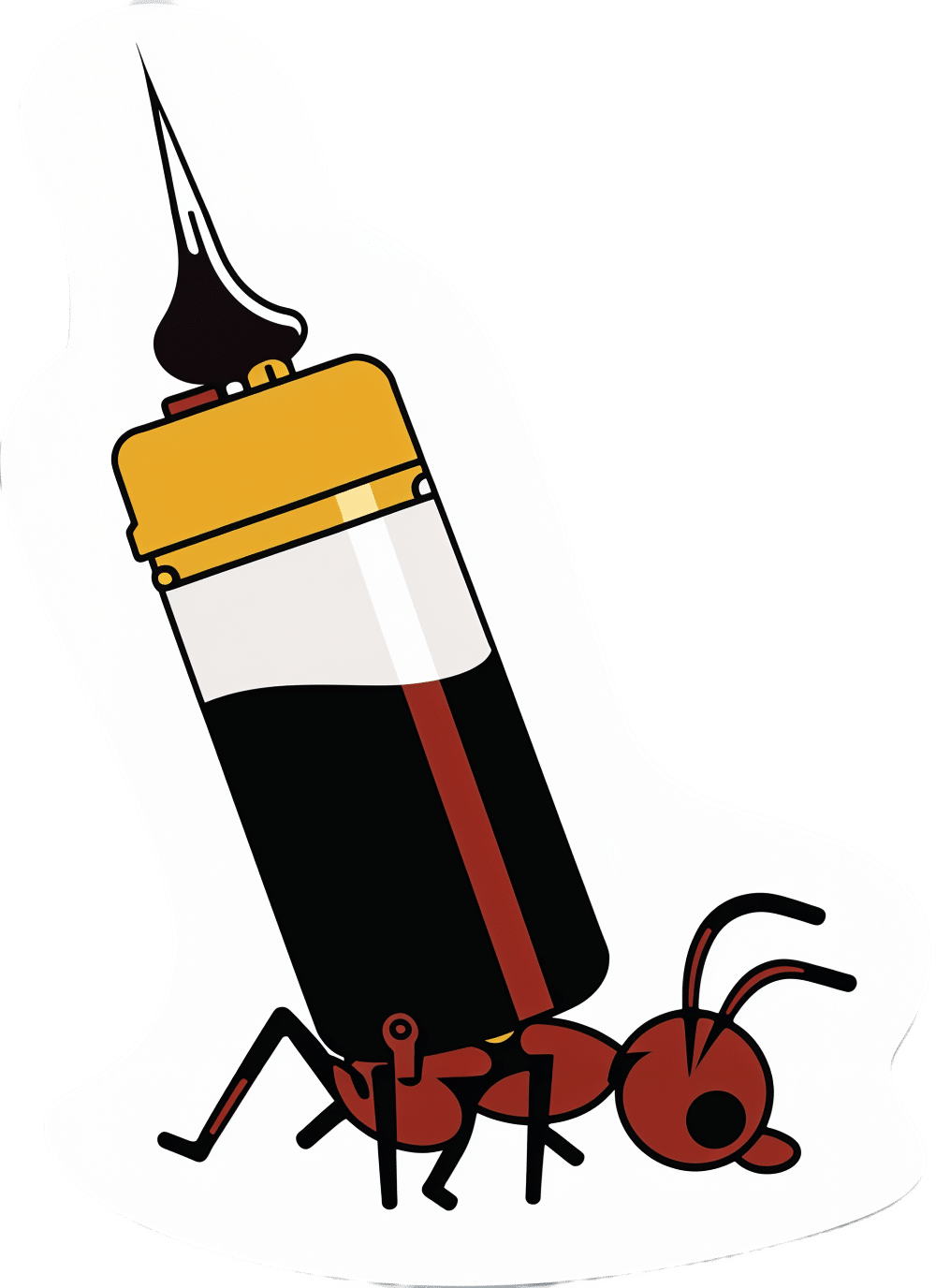
America Worries About Health Costs — And Voters Want to Hear From Biden and Republicans
10almonds is reader-supported. We may, at no cost to you, receive a portion of sales if you purchase a product through a link in this article.
President Joe Biden is counting on outrage over abortion restrictions to help drive turnout for his reelection. Former President Donald Trump is promising to take another swing at repealing Obamacare.
But around America’s kitchen tables, those are hardly the only health topics voters want to hear about in the 2024 campaigns. A new KFF tracking poll shows that health care tops the list of basic expenses Americans worry about — more than gas, food, and rent. Nearly 3 in 4 adults — and majorities of both parties — say they’re concerned about paying for unexpected medical bills and other health costs.
“Absolutely health care is something on my mind,” Rob Werner, 64, of Concord, New Hampshire, said in an interview at a local coffee shop in January. He’s a Biden supporter and said he wants to make sure the Affordable Care Act, also known as Obamacare, is retained and that there’s more of an effort to control health care costs.
The presidential election is likely to turn on the simple question of whether Americans want Trump back in the White House. (Nikki Haley, the former South Carolina governor and U.S. ambassador to the United Nations, remained in the race for the Republican nomination ahead of Super Tuesday, though she had lost the first four primary contests.) And neither major party is basing their campaigns on health care promises.
But in the KFF poll, 80% of adults said they think it’s “very important” to hear presidential candidates talk about what they’d do to address health care costs — a subject congressional and state-level candidates can also expect to address.
“People are most concerned about out-of-pocket expenses for health care, and rightly so,” said Andrea Ducas, vice president of health policy at the Center for American Progress, a Washington, D.C.-based progressive think tank.
Here’s a look at the major health care issues that could help determine who wins in November.
Abortion
Less than two years after the Supreme Court overturned the constitutional right to an abortion, it is shaping up to be the biggest health issue in this election.
That was also the case in the 2022 midterm elections, when many voters rallied behind candidates who supported abortion rights and bolstered Democrats to an unexpectedly strong showing. Since the Supreme Court’s decision, voters in six states — including Kansas, Kentucky, and Ohio, where Republicans control the legislatures — have approved state constitutional amendments protecting abortion access.
Polls show that abortion is a key issue to some voters, said Robert Blendon, a public opinion researcher and professor emeritus at the Harvard T.H. Chan School of Public Health. He said up to 30% across the board see it as a “personal” issue, rather than policy — and most of those support abortion rights.
“That’s a lot of voters, if they show up and vote,” Blendon said.
Proposals to further protect — or restrict — abortion access could drive voter turnout. Advocates are working to put abortion-related measures on the ballot in such states as Arizona, Florida, Missouri, and South Dakota this November. A push in Washington toward a nationwide abortion policy could also draw more voters to the polls, Blendon said.
A surprise ruling by the Alabama Supreme Court in February that frozen embryos are children could also shake up the election. It’s an issue that divides even the anti-abortion community, with some who believe that a fertilized egg is a unique new person deserving of full legal rights and protections, and others believing that discarding unused embryos as part of the in vitro fertilization process is a morally acceptable way for couples to have children.
Pricey Prescriptions
Drug costs regularly rank high among voters’ concerns.
In the latest tracking poll, more than half — 55% — said they were very worried about being able to afford prescription drugs.
Biden has tried to address the price of drugs, though his efforts haven’t registered with many voters. While its name doesn’t suggest landmark health policy, the Inflation Reduction Act, or IRA, which the president signed in August 2022, included a provision allowing Medicare to negotiate prices for some of the most expensive drugs. It also capped total out-of-pocket spending for prescription drugs for all Medicare patients, while capping the price of insulin for those with diabetes at $35 a month — a limit some drugmakers have extended to patients with other kinds of insurance.
Drugmakers are fighting the Medicare price negotiation provision in court. Republicans have promised to repeal the IRA, arguing that forcing drugmakers to negotiate lower prices on drugs for Medicare beneficiaries would amount to price controls and stifle innovation. The party has offered no specific alternative, with the GOP-led House focused primarily on targeting pharmacy benefit managers, the arbitrators who control most Americans’ insurance coverage for medicines.
Costs of Coverage
Health care costs continue to rise for many Americans. The cost of employer-sponsored health plans have hit new highs in the past few months, raising costs for employers and workers alike. Experts have attributed the increase to high demand and expensive prices for certain drugs and treatments, notably weight loss drugs, as well as to medical inflation.
Meanwhile, the ACA is popular. The KFF poll found that more adults want to see the program expanded than scaled back. And a record 21.3 million people signed up for coverage in 2024, about 5 million of them new customers.
Enrollment in Republican-dominated states has grown fastest, with year-over-year increases of 80% in West Virginia, nearly 76% in Louisiana, and 62% in Ohio, according to the Centers for Medicare & Medicaid Services.
Public support for Obamacare and record enrollment in its coverage have made it politically perilous for Republicans to pursue the law’s repeal, especially without a robust alternative. That hasn’t stopped Trump from raising that prospect on the campaign trail, though it’s hard to find any other Republican candidate willing to step out on the same limb.
“The more he talks about it, the more other candidates have to start answering for it,” said Jarrett Lewis, a partner at Public Opinion Strategies, a GOP polling firm.
“Will a conversation about repeal-and-replace resonate with suburban women in Maricopa County?” he said, referring to the populous county in Arizona known for being a political bellwether. “I would steer clear of that if I was a candidate.”
Biden and his campaign have pounced on Trump’s talk of repeal. The president has said he wants to make permanent the enhanced premium subsidies he signed into law during the pandemic that are credited with helping to increase enrollment.
Republican advisers generally recommend that their candidates promote “a market-based system that has the consumer much more engaged,” said Lewis, citing short-term insurance plans as an example. “In the minds of Republicans, there is a pool of people that this would benefit. It may not be beneficial for everyone, but attractive to some.”
Biden and his allies have criticized short-term insurance plans — which Trump made more widely available — as “junk insurance” that doesn’t cover care for serious conditions or illnesses.
Entitlements Are Off-Limits
Both Medicaid and Medicare, the government health insurance programs that cover tens of millions of low-income, disabled, and older people, remain broadly popular with voters, said the Democratic pollster Celinda Lake. That makes it unlikely either party would pursue a platform that includes outright cuts to entitlements. But accusing an opponent of wanting to slash Medicare is a common, and often effective, campaign move.
Although Trump has said he wouldn’t cut Medicare spending, Democrats will likely seek to associate him with other Republicans who support constraining the program’s costs. Polls show that most voters oppose reducing any Medicare benefits, including by raising Medicare’s eligibility age from 65. However, raising taxes on people making more than $400,000 a year to shore up Medicare’s finances is one idea that won strong backing in a recent poll by The Associated Press and NORC Center for Public Affairs Research.
Brian Blase, a former Trump health adviser and the president of Paragon Health Institute, said Republicans, if they win more control of the federal government, should seek to lower spending on Medicare Advantage — through which commercial insurers provide benefits — to build on the program’s efficiencies and ensure it costs taxpayers less than the traditional program.
So far, though, Republicans, including Trump, have expressed little interest in such a plan. Some of them are clear-eyed about the perils of running on changing Medicare, which cost $829 billion in 2021 and is projected to consume nearly 18% of the federal budget by 2032.
“It’s difficult to have a frank conversation with voters about the future of the Medicare program,” said Lewis, the GOP pollster. “More often than not, it backfires. That conversation will have to happen right after a major election.”
Addiction Crisis
Many Americans have been touched by the growing opioid epidemic, which killed more than 112,000 people in the United States in 2023 — more than gun deaths and road fatalities combined. Rural residents and white adults are among the hardest hit.
Federal health officials have cited drug overdose deaths as a primary cause of the recent drop in U.S. life expectancy.
Republicans cast addiction as largely a criminal matter, associating it closely with the migration crisis at the U.S. southern border that they blame on Biden. Democrats have sought more funding for treatment and prevention of substance use disorders.
“This affects the family, the neighborhood,” said Blendon, the public opinion researcher.
Billions of dollars have begun to flow to states and local governments from legal settlements with opioid manufacturers and retailers, raising questions about how to best spend that money. But it isn’t clear that the crisis, outside the context of immigration, will emerge as a campaign issue.
KFF Health News is a national newsroom that produces in-depth journalism about health issues and is one of the core operating programs at KFF—an independent source of health policy research, polling, and journalism. Learn more about KFF.
Subscribe to KFF Health News’ free Morning Briefing.
Don’t Forget…
Did you arrive here from our newsletter? Don’t forget to return to the email to continue learning!
Recommended
Learn to Age Gracefully
Join the 98k+ American women taking control of their health & aging with our 100% free (and fun!) daily emails:
-
PlantYou: Scrappy Cooking – by Carleigh Bodrug
10almonds is reader-supported. We may, at no cost to you, receive a portion of sales if you purchase a product through a link in this article.
This is a book that took “whole foods plant-based diet” and ran with it.
“Whole foods”, you say? Carleigh Bodrug has you covered in this guide to using pretty much everything.
One of the greatest strengths of the book is its “Got this? Make that” section, for using up those odds and ends that you’d normally toss.
You may be thinking: “ok, but if to use this unusual ingredient I have to buy four other ingredients to make this recipe, generating waste from those other ingredients, then this was a bad idea”, but fear not.
Bodrug covers that too, and in many cases leftover “would get wasted” ingredients can get turned into stuff that can go into longer-term storage one way or another, to use at leisure.
Which also means that on the day “there’s nothing in the house to eat” and you don’t want to go grocery-shopping, or if some global disaster causes the supply lines to fail and the stores become empty (that could never happen though, right?), you will have the mystical ability to conjure a good meal out of assorted odds and ends that you stored because of this book.
Bottom line: if you love food and hate food waste, this is a great book for you.
Click here to check out Scrappy Cooking, and do domestic magic!
Share This Post
-
Turmeric (Curcumin) Dos and Don’ts With Dr. Kim
10almonds is reader-supported. We may, at no cost to you, receive a portion of sales if you purchase a product through a link in this article.
Turmeric is a fabulous spice, most well-known for its anti-inflammatory powers; its antioxidant effects benefit all of the body, including the brain. While it fights seemingly everything from arthritis to atherosclerosis to Alzheimer’s and more, it also boosts brain-derived neurotrophic factor, looks after your cardiovascular health, holds back diabetes, reduces the risk of cancer, fights depression, slows aging, and basically does everything short of making you sing well too.
Dr. Leonid Kim goes over the scientific evidence for these, and also talks about some of the practicalities of taking turmeric, and safety considerations.
For the most part, turmeric is very safe even at high doses (up to 8g at least); indeed, at smaller doses (e.g. 500mg) it largely does the same job as non-steroidal anti-inflammatory drugs (NSAIDs) such as ibuprofen, with fewer problems.
It also does the job of several antidiabetic medications, by increasing uptake of glucose (thus reducing blood sugar levels) while simultaneously decreasing the glucose secretion from the liver. It does this by regulating the AMPK signalling pathway, just like metformin—while again, being safer.
Dr. Kim also looks at the (good!) evidence for turmeric in managing PCOS and undoing NAFLD; so far, so good.
Dosage: he bids us pay attention whether we’re taking it as turmeric itself or as curcumin standardized extract. The latter is the active compound, and in principle more powerful, but in practice it can get metabolized too quickly and easily—before it can have its desired effect. So, turmeric itself is a very good choice.
Absorption: since we do want it to be absorbed well, though, he does recommend taking it with piperine (as in black pepper).
You may be thinking: isn’t this going to cause the same problem you were just talking about, and cause it to be metabolized too quickly? And the answer is: no! How piperine works is almost the opposite; it protects the curcumin in the turmeric from our digestive enzymes, and thus allows them to get absorbed without being broken down too quickly—thus increasing the bioavailability by slowing the process down.
Lipophilia: no, that’s not a disease (or a fetish), rather it means that curcumin is soluble in fats, so we should take it near in time to a meal that contains at least a tablespoon of oil in total (so if you’re cooking a curry with your turmeric, this need is covered already, for example).
Supplement provenance: he recommends picking a supplement that’s been tested by a reputable 3rd party, as otherwise turmeric can be quite prone to impurities (which can include lead and arsenic, so, not great).
Contraindications: for some people, curcumin can cause gastrointestinal issues (less likely if taking with meals), and also, it can interact with blood-thinners. While taking aspirin or curcumin alone might help avoid circulatory problems, taking both could increase the bleeding risk for some people, for example. Similarly, if taking curcumin and metformin while diabetic, one must watch out for the combination being too effective at lowering blood sugar levels, and thus causing hypoglycemia instead. Similar deal with blood pressure medications.
There’s more in the video though (yes really; we know we wrote a lot but it’s information-dense), so do check it out:
Click Here If The Embedded Video Doesn’t Load Automatically
Want to know more?
You can also check out our related articles:
Why Curcumin (Turmeric) Is Worth Its Weight In Gold
Black Pepper’s Impressive Anti-Cancer Arsenal (And More)Share This Post
-
Midwives Blame California Rules for Hampering Birth Centers Amid Maternity Care Crisis
10almonds is reader-supported. We may, at no cost to you, receive a portion of sales if you purchase a product through a link in this article.
Jessie Mazar squeezed the grab handle in her husband’s pickup and groaned as contractions struck her during the 90-minute drive from her home in rural northeastern California to the closest hospital with a maternity unit.
She could have reached Plumas District Hospital, in Quincy, in just seven minutes. But it no longer delivers babies.
Local officials have a plan for a birth center in Quincy, where midwives could deliver babies with backup from on-call doctors and a standby perinatal unit at the hospital, but state health officials have yet to approve it.
That left Mazar to brave the long, winding road — one sometimes blocked by snow, floods, or forest fires — to have her baby. Women across California are facing similar ordeals as hospitals increasingly close money-losing maternity units, especially in rural areas.
Midwife-operated birth centers offer an alternative for women with low-risk pregnancies and can play a crucial role in filling the gap left by hospitals’ retreat from obstetrics, maternal health advocates say.
Declining birth rates, staffing shortages, and financial pressures have led 56 California hospitals — about 1 in 6 — to shutter maternity units over the past dozen years.
But midwives say California’s regulatory regime around birth centers is unnecessarily preventing new centers from opening and leading some existing facilities to close. Obtaining a license can take as long as four years.
“All they’ve essentially done is made it more dangerous to have a baby,” said Sacramento midwife Bethany Sasaki. “People have to drive two hours now because a birth center can’t open, so it’s more dangerous. People are going to be having babies in cars on the side of the road.”
Last month, state Assembly member Mia Bonta introduced legislation to streamline the regulatory process and fix what she calls “a broken system” for licensing birth centers.
“We know that alternative birth centers lead to often better outcomes, lower-risk births, more opportunity for children to be born healthy, and also to lower maternal mortality and morbidity,” she said.
The proposed bill would remove various bureaucratic requirements, though many details have yet to be finalized. Bonta introduced the bill in its current form as a jumping-off point for discussions about how to expedite licensing.
“It’s a starting place,” said Sandra Poole, health policy advocate for the Western Center on Law & Poverty, a co-sponsor of the legislation.
For now, birth centers struggle with a gantlet of rules, only some clearly connected to patient safety. Over the past decade, the number of licensed birth centers in California dropped from 12 to five, according to Bonta.
Plumas County officials are trying to address one key issue: how far a birth center can be from a hospital with a round-the-clock obstetrics unit. State regulations say it can be no more than a 30-minute drive, a distance set when many more hospitals had maternity units.
The first-of-its-kind “Plumas model” aims to take advantage of flexibility provisions in the law to address the obstacle in a way that could potentially be replicated elsewhere in the state.
But the hospital’s application for a birth center and a perinatal unit has been “languishing” with the California Department of Public Health, which is “looking for cover from the legislature,” said Robert Moore, chief medical officer of Partnership HealthPlan of California, a Medi-Cal managed-care plan serving most of Northern California. Asked about the application, a CDPH spokesperson said only that it was under review.
The goal should be for all women to be within an hour’s drive of a hospital with an obstetrics unit, Moore said. Data shows the complication rate goes up after an hour and even higher after two hours, he said, while the benefit is less compelling between 30 and 60 minutes.
Numerous other regulations have made it difficult for birth centers to keep their doors open.
Since August, birth centers in Sacramento and Monterey have had to stop operating because their heating ducts failed to meet licensing requirements. The facilities fall under the same state Department of Health Care Access and Information regulations as primary care clinics, though birth centers see healthy families, not sick ones, and don’t need hospital-grade ventilation, said midwife Caroline Cusenza.
She had spent $50,000 remodeling the Monterey Birth & Wellness Center to include state-required items, such as nursing and hand-washing stations and a housekeeping closet. In the end, a requirement for galvanized steel heating vents, which would have required opening the ceiling at an unaffordable cost, prompted her heart-wrenching decision to close.
“We’re turning women away in tears,” said Sasaki, who owned Midtown Birth Center in Sacramento. She bought the building for $760,000 and spent $250,000 remodeling it in a way she believed met all licensing requirements. But regulators would not license it unless the heating system was redone. Sasaki estimated it would have cost an additional $50,000 to bring it into compliance — too much to keep operating.
She blamed her closure on “regulatory dysfunction.”
Legislation signed by Gov. Gavin Newsom last year could ease onerous building codes such as those governing Sasaki’s and Cusenza’s heating systems, said Poole, the health policy advocate.
The state has taken two to four years to issue birth center licenses, according to a brief by the Osher Center for Integrative Health at the University of California-San Francisco. The state Department of Public Health “works tirelessly to ensure health facilities are able to be properly licensed and follow all applicable requirements within our authority before and during their operation,” spokesperson Mark Smith said.
Bonta, an Oakland Democrat who chairs the Assembly’s health committee, said she would consider increasing the allowable drive time between a birth center and a hospital maternity unit as part of her new legislation.
The state last updated birth center regulations more than a decade ago, before hospitals’ mass exodus from obstetrics. “The hurdle is the time and distance standards without compromising safety,” Poole said. “But where there’s nothing right now, we would say a birth center is certainly a better alternative to not having any maternal care.”
Moore noted that midwife-led births in homes and birth centers are the mainstay of obstetric care in Europe, where the infant mortality rate is considerably lower than in the U.S. More than 98% of American babies are born in hospitals.
Babies delivered by midwives are more likely to be born vaginally, less likely to require intensive care, and more likely to breastfeed, the California Maternal Quality Care Collaborative has found. Midwife-led births also lead to fewer infant emergency room visits, hospitalizations, and neonatal deaths. And they cost far less: Birth centers generally charge one-quarter or less of the average cost of about $36,000 for a vaginal birth in a California hospital.
If they catered only to private-pay clients, Cusenza and Sasaki could have continued operating without licenses. They must be licensed, however, to receive payments from Medi-Cal and some private insurance companies, which they needed to remain in business. Medi-Cal, the state’s Medicaid health insurance program, which covers low-income residents, paid for about 40% of the state’s births in 2022.
Bonta has heard reports from midwives that the key to getting licensed is hunting down the right state health department advocate. “I don’t believe that we should be building resources based on the model of ‘Where’s Waldo?’ in finding a champion inside CDPH,” she said.
Lori Link, director of midwifery at Plumas District Hospital, believes the Plumas model can turn what’s become a maternity desert into an oasis. Jessie Mazar, whose son was born in September without complications at a Truckee hospital, would welcome the opportunity to deliver her planned second child in Quincy.
“That would be convenient,” she said. “We’re not holding our breath.”
This article was produced by KFF Health News, which publishes California Healthline, an editorially independent service of the California Health Care Foundation.
USE OUR CONTENT
This story can be republished for free (details).
KFF Health News is a national newsroom that produces in-depth journalism about health issues and is one of the core operating programs at KFF—an independent source of health policy research, polling, and journalism. Learn more about KFF.
Subscribe to KFF Health News’ free Morning Briefing.
This article first appeared on KFF Health News and is republished here under a Creative Commons license.
Share This Post
Related Posts
-
Everything you need to know about cervical cancer
10almonds is reader-supported. We may, at no cost to you, receive a portion of sales if you purchase a product through a link in this article.
Every year, around 11,500 new cases of cervical cancer are diagnosed in the U.S. While cervical cancer used to be one of the most common causes of cancer death for U.S. women, the vaccine against the human papillomavirus (HPV), and increased early screening and detection have resulted in a decrease in rates.
“Cervical cancer is almost always preventable and typically diagnosed in patients who have either never had a screening test or have gone many years without one,” says Fred Wyand, director of communications at the American Sexual Health Association, which includes the National Cervical Cancer Coalition.
January is Cervical Cancer Awareness Month, so we spoke to experts to learn more about what it is, its symptoms, and what you can do to prevent it.
What is cervical cancer?
Cervical cancer is a type of cancer that starts in the cervix—the lower part of the uterus that connects the vagina to the uterus. Cervical cancer can affect anyone with a cervix but is most frequently diagnosed in women ages 35 to 44, according to the American Cancer Society.
There are two types:
- Squamous cell carcinoma: Cervical cancer that starts in the thin squamous cells on the outside of the cervix. This is the most common type of cervical cancer.
- Adenocarcinoma: Cervical cancer that starts in glandular cells that line the inside of the cervix. This type of cervical cancer is less common.
In some cases, cervical cancer has features of both types.
What causes cervical cancer?
Almost all cases of cervical cancer are caused by high-risk cases of HPV, a virus that is spread through sexual activity or other close skin-to-skin contact. But don’t panic: HPV is very common, and getting HPV doesn’t always mean you’ll get cervical cancer. Around 85 percent of people in the U.S. will get an HPV infection in their lifetime, but for most people, the virus clears on its own.
However, there are many strains of HPV, and some are linked to cervical cancer. In those cases, when the virus does not clear on its own and the HPV infection persists, it can cause a range of cancers in both men and women, including cancers of the cervix, anus, penis, throat, and vagina.
That’s why HPV vaccination is so important for all people: It can help prevent many types of cancer, including cervical cancer caused by those high-risk HPV infections.
What are the symptoms of cervical cancer?
Cervical cancer doesn’t usually have symptoms in its early stages, but once cancer begins to spread, the symptoms can include:
- Vaginal bleeding between periods, after sexual intercourse, or after menopause.
- Heavier and longer menstrual periods than usual.
- Vaginal discharge that has a strong odor and is watery.
- Pelvic pain or pain during sexual intercourse.
In more advanced stages, symptoms of cervical cancer can include:
- Leg swelling.
- Difficult or painful bowel movements or bleeding during a bowel movement.
- Blood in urine or difficulty urinating.
- Back pain.
“Most women present with no symptoms,” Dr. Kristina A. Butler, gynecologic oncologist at Mayo Clinic, tells PGN. “Therefore, the checkups with visualization of the cervix, speaking with your provider, and having a Pap smear are so important.”
How can you help prevent or reduce your risk for cervical cancer?
Vaccination: Cervical cancer is highly preventable. The most effective way to help protect yourself from it is by getting the HPV vaccine. The HPV vaccine is most effective before a person is first exposed to HPV, typically before becoming sexually active.
“If we are able to vaccinate children before they become adults [and] are subsequently exposed, those individuals are maximally protected against the [worst effects] of the virus, which could ultimately be cancer,” Butler adds.
You’re eligible to get the vaccine if you’re between 9 and 45 years old, but there are specific guidelines for each age group. The Centers for Disease Control and Prevention recommends HPV vaccination for children ages 11 or 12 (though it can start at 9 years).
The CDC says that you can get catch-up doses until you’re 26 if you didn’t get vaccinated earlier, but if you’re between 26 and 45 years old, you should talk to your health care provider about your individual risk for HPV and to see if you should get the vaccine.
Screenings: This is another effective way to prevent cervical cancer.
Dr. Deanna Gerber, a gynecologic oncologist at NYU Langone’s Laura and Isaac Perlmutter Cancer Center, tells PGN that regular screenings can catch HPV before it has a chance to become cancer.
“Now that we’re encouraging people to see their gynecologist and get screening more regularly, we’re catching cancer at earlier stages,” she says.
Screenings for cervical cancer include:
- Pap smear: During a Pap smear, also known as a Pap test, cells are collected from your cervix to find precancerous or cervical cancer cells. Pap smears should start at 21 years old, regardless of when you start having sex.
If you’re between 21 and 29, you should get a Pap smear every three years. If you’re 30 to 65 years old, it’s recommended you get one every three years, a Pap and HPV test together every five years, or an HPV test alone every five years.
- HPV test: During an HPV test, cells are collected from your cervix to look for infection with high-risk HPV strains that can cause cervical cancer. If you’re between 21 and 30 years old, it’s only recommended that you get an HPV test if you had an abnormal Pap smear result. After 30, an HPV test is recommended with a Pap smear every five years, as long as other results were normal.
(People over 65 years old should talk to their health care provider about whether they need screening.)
Not smoking: Avoiding smoking can reduce your risk of developing cervical cancer because “HPV and smoking tobacco work together to accelerate the negative effects of HPV,” says Gerber.
Wearing condoms: Although condoms don’t completely prevent HPV infection, they provide some protection. And according to the CDC, the use of condoms has been associated with a lower rate of cervical cancer.
There is hope with early detection
There is hope for people diagnosed with cervical cancer. “Compared to the survival [rates] 10 years ago, women survive much longer now with the great treatments we have,” adds Butler.
Some of those treatments and advances include radiation, chemotherapy, and surgical therapy.
And while there may be some stigma surrounding sexual health, it’s important to advocate for yourself, says Gerber.
“Being comfortable and bold talking to your doctor about your health or any concerns that you have, feeling comfortable with your provider by asking all these questions is really the best thing you can do.”
For more information, talk to your health care provider.
This article first appeared on Public Good News and is republished here under a Creative Commons license.
Don’t Forget…
Did you arrive here from our newsletter? Don’t forget to return to the email to continue learning!
Learn to Age Gracefully
Join the 98k+ American women taking control of their health & aging with our 100% free (and fun!) daily emails:
-
Polyphenol Paprika Pepper Penne
10almonds is reader-supported. We may, at no cost to you, receive a portion of sales if you purchase a product through a link in this article.
This one’s easier to promptly prepare than it is to pronounce unprepared! Ok, enough alliteration: this dish is as full of flavor as it is full of antioxidants, and it’s great for digestive health and heart health too.
You will need
- 4 large red bell peppers, diced
- 2 red onions, roughly chopped
- 1 bulb garlic, finely chopped
- 2 cups cherry tomatoes, halved
- 10oz wholemeal penne pasta
- 1 tbsp nutritional yeast
- 1 tbsp smoked paprika
- 1 tbsp black pepper
- Extra virgin olive oil for drizzling
Method
(we suggest you read everything at least once before doing anything)
1) Preheat the oven to 200℃ / 400℉ / Gas mark 6
2) Put the vegetables in a roasting tin; drizzle with oil, sprinkle with the seasonings (nooch, paprika, black pepper), stir well to mix and distribute the seasonings evenly, and roast for 20–25 minutes, stirring/turning occasionally. When the edges begin to caramelize, turn off the heat, but leave to keep warm.
3) Cook the penne al dente (this should take 7–8 minutes in boiling salted water). Rinse in cold water, then pass a kettle of hot water over them to reheat. This process removed starch and lowered the glycemic index, before reheating the pasta so that it’s hot to serve.
4) Place the roasted vegetables in a food processor and blitz for just a few seconds. You want to produce a very chunky sauce—but not just chunks or just sauce.
5) Combine the sauce and pasta to serve immediately.
Enjoy!
Want to learn more?
For those interested in some of the science of what we have going on today:
- Which Bell Peppers To Pick? A Spectrum Of Specialties ← note how red bell peppers are perfect for this, as their lycopene quadruples in bioavailability when cooked
- Black Pepper’s Impressive Anti-Cancer Arsenal (And More)
- The Many Health Benefits Of Garlic
- What Matters Most For Your Heart? Eat More (Of This) For Lower Blood Pressure
Take care!
Don’t Forget…
Did you arrive here from our newsletter? Don’t forget to return to the email to continue learning!
Learn to Age Gracefully
Join the 98k+ American women taking control of their health & aging with our 100% free (and fun!) daily emails:
-
Is Ant Oil Just “Snake Oil”?
10almonds is reader-supported. We may, at no cost to you, receive a portion of sales if you purchase a product through a link in this article.
We Tested Out “Ant Egg Oil”
Did you know?! There’s a special protein found only in the eggs of a particular species of ant found in Turkey, that can painlessly and permanently stop (not just slow!) hair regrowth in places you’d rather not have hair.
Neither did we, and when we heard about it, we did our usual research, and discovered a startling secret.
…there probably isn’t.
We decided to dig deeper, and the plot (unlike the hair in question) thickens:
We could not find any science for or against (or even generally about) the use of ant egg oil to prevent hair regrowth. Not a peep. What we did find though was a cosmetic chemist who did an analysis of the oil as sold, and found its main ingredient appears to be furan-2-carbaldehyde, or Furfural, to its friends.
Surprise! There’s also no science that we could find about the effect of Furfural (we love the name, though! Fur for all!) on hair, except that it’s bad for rodents (and their hair) if they eat a lot of it. So please don’t eat it. Especially if you’re a mouse.
And yet, many ostensibly real reviews out in the wild claim it works wonders. So, we took the investigative reporting approach and tried it ourselves.
That’s right, a plucky member of our team tried it, and she reports:
❝ At first glance, it seems like olive oil. There’s something else though, adding a darker colour and a slight bitterness to the smell.
After waxing, I applied a little every few days. When the hair eventually regrew (and it did), it grew back thinner, and removing the new hairs was a strangely easy experience, like pulling hairs out of soft soap instead of out of skin. It didn’t hurt at all, either.
I had more of the oil, so I kept going with the treatment, and twelve weeks later there are very few hairs regrowing at all; probably there will be none left soon. Whatever’s in this, be it from ant eggs or wheat bran or something else entirely, it worked for me!❞
So in short: it remains a mystery for now! If you try it, let us know how it went for you.
Here’s the “interesting” website that sells it, though you may find it for less on eBay or similar. (Note, we aren’t earning any commissions from these links. We just wanted to make it easier for you to dive deeper).
Don’t Forget…
Did you arrive here from our newsletter? Don’t forget to return to the email to continue learning!
Learn to Age Gracefully
Join the 98k+ American women taking control of their health & aging with our 100% free (and fun!) daily emails:

